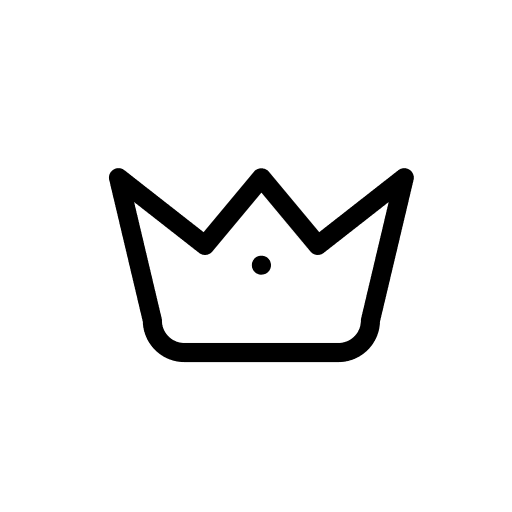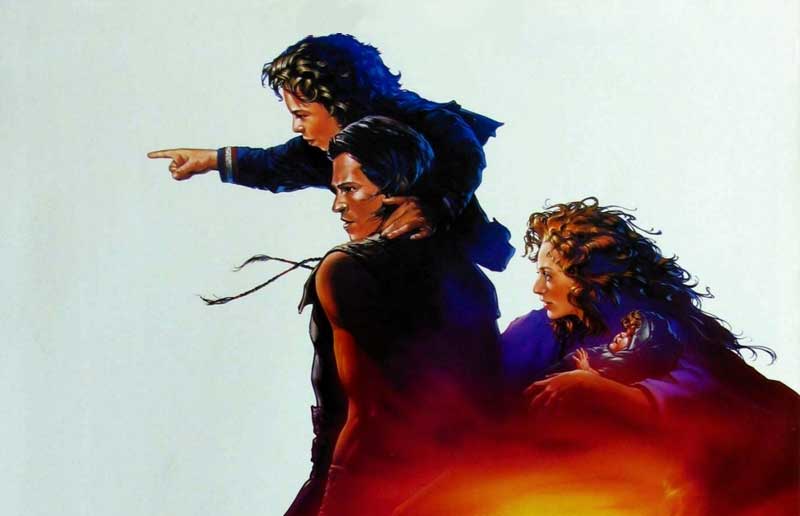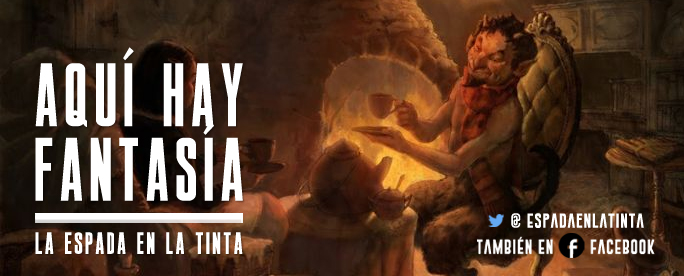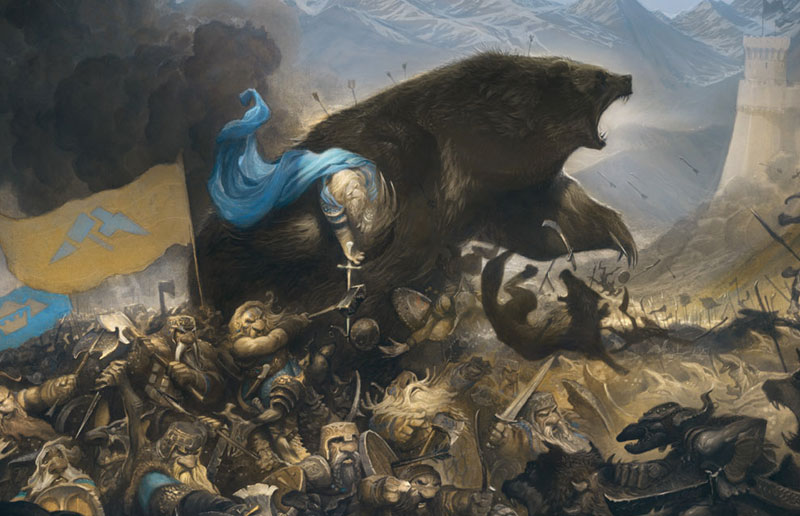Brent: ¡Muchas gracias a vosotros! Agradezco sinceramente la posibilidad de hablar con algunos de mis lectores en España. Es un gran privilegio, y lo aprecio de verdad.
Original interview in English
First of all, thank you very much for devoting some of your valuable time to this interview. It is a great honour to welcome you to La Espada en la Tinta. Before starting on the questions that the readers are impatient to read, we wanted to congratulate you on recently becoming a father!
Thank you so much. It’s been an amazing journey. And I think I’ve gotten ridiculously lucky in having a daughter who’s been pretty easy so far. Fingers crossed that it continues!
"I have a deep love of science, so I wanted to make a magic system that makes sense"
How does a successful writer like yourself handle things like changing diapers? Has the recent birth of your daughter affected your writing routine much? How to you organize your time for writing now?
Well, I like to think of myself as more of a real person than as a celebrity. So I’m afraid changing diapers is the same for me as it is for everyone else. Except my daughter’s diapers are gold-plated. And I have 12 nannies who handled the actual changing part. Otherwise, exactly the same.
Honestly, for the first month or two my wife and I have reached a deal whereby I have four to six hours each day set aside for writing, wherein I don’t have to worry about diapers or feedings. That helps me concentrate my efforts but also still get to experience the many joys and challenges of being a dad. As time goes on, of course, I will have more and more time to write.
Brent Weeks with a copy of the Spanish edition of The Blinding Knife.
In less than a month, the second part of your “Lightbringer” series will be published in Spanish. You have no idea how impatiently we are awaiting the continuation of Gavin’s adventures, he’s a character that we adore. How did you come up with the idea to portray the relationship between two brothers who are physically so similar and yet emotionally so very different? This game of mirrors between them? Did you base this on any personal experience with a member of your family, was this the inspiration to examine this love-hate sibling relationship?
I have an older brother and despite that he was four years older than me, we were often mistaken for twins. He came to one of my very first readings for The Black Prism, and he asked me about this. In fact, he asked, “Which brother, Brent, is you?” To which I naturally replied, “The good one, of course!”
And now to talk about the characters of The Black Prism... Which of them gave you the most headaches to create? Are you the one in charge or do they rebel against you and take control of how the story will progress?
I like to think that I’m in charge the way Gavin Guile is in charge of The Seven Satrapies: which is to say, most of the time, or not really at all, depending on your perspective. Creating characters is one of the joys of writing for me and also one of my strengths. However, I will say that creating deep and memorable and honest female characters is always the hardest for me. I work very hard to try to write my women well, and I seek advice and feedback about those characters from women I respect, which is a step I often don’t bother with for my male characters. I think that many of the women whom you’ve met in The Black Prism will continue to grow and surprise you as the series develops. I also introduce a new character named Teia in The Blinding Knife, whom I love.
Are you going to surprise us with a new character in The Blinding Knife or will we continue enjoying Gavin and the others’ company?
In The Black Prism, I had so many concepts and so much world to introduce that I deliberately kept the cast list smaller. With The Blinding Knife, I trust my readers to understand the world and now, as Kip enters The Chromeria (the political center of this world), he necessarily meets many more people.
I introduce a few characters in particular that I’m really excited about readers meeting: Teia, the color-blind Blackguard trainee who becomes Kip’s new partner; the assassin Murder Sharp; the idealist, Cruxer; and a pair of women who have major talents on the level of the talent of being a Prism (a Seer and a Mirror).
The setting of these novels brings to mind 15th century Mediterranean Europe. Why did you choose that era? Would you like to have lived in that period of history?
Oh, I like the modern foods, modern comforts, modern medicine, and the general lack of slavery that dominate in our era far too much to wish to actually live in this time period. But a visit would be amazing!
The technology level I portray in The Lightbringer Series is roughly analogous to the early 1600s. The more I research it, the more I see that it was an amazing time. Technology was progressing by leaps and bounds: ship design changing and warfare changing all the time. I do skew things a little bit. Because light and color is so important in this world, I assume their sciences would have investigated those more. So I have innovations like colored lenses that wouldn’t be seen in our world until the 1750s.
About the magic system in “Lightbringer”: how did you come up with the idea of using a concept drawn from science, from physics, like the light spectrum? Did you have a kind of “eureka” moment in your mind or did you specifically seek out information about it to research and create luxin?
I have a deep love of science, so I wanted to make a magic system that makes sense, that works a little bit the way science works, where a lot of simple systems interact together and make something beautiful and astonishing, but still logical.
Something like color is simple on its surface. We all know what red is, we all have associations with red being warm, and how it makes you feel when you see red or are surrounded by red. Our languages are full of color metaphors. But colors are also scientifically complicated. Ask a color-blind man to distinguish between red and green, and it may well be impossible for him to do so. With colors, the objective world (where we perceive energy on the electromagnetic spectrum between 400 and 484 nanometers to be red) and the subjective world (where what I see as red is not the same as what that color-blind man sees) intersect.
Before moving on to other matters, we’d like to discuss your previous series, the “Night Angel” trilogy. The cinematic pacing and the spectacular action and battle scenes in it remind us of a high-budget movie. What movie references to you have in mind when you write? Did you have any particular inspiration for the creation of the assassin characters?
"I wanted to write an assassin character who had psychological depth and realism, kind of a James Bond with a conscience".
I think that some of the cinematic quality of that trilogy comes from the fact that I did a very silly thing when I was a young writer, trying to break into the business. I adapted The Way of Shadows into a screenplay. It was, sadly, a hopeless effort. But it wasn’t a wasted one. Thinking visually helped me go back and rewrite the manuscript and make it better. I wanted fight scenes that made sense. I wanted you to be able to picture what the characters do. So as I wrote fight scenes, I would literally block it out to ensure that it all held together. I did the same with battle scenes, scribbling drawing after drawing to make sure that the way a battle unfolded made sense, and comparing, as best I could, my battles to real battles from history to get a sense of how cavalry interacts with heavy infantry and so forth.
As far as particular inspiration for my characters, the main one is now sadly outmoded. I wanted to write an assassin character who had psychological depth and realism, kind of a James Bond with a conscience. The most recent trio of James Bond movies (Casino Royale, Quantum of Solace, Skyfall) have done exactly this. I wanted to figure out what kind of character would kill professionally without being an utter monster or psychopath. What kind of situation would you have to put a reasonably moral person into that would compel them to do such things? And then, what price would they pay for it?
One of the themes which has become most fashionable lately in fantastic fiction is to have assassins as main characters. How did you come up with and develop the idea of having assassins participate in the fate of Cenaria?
I began writing The Way of Shadows when I was 25 years old. I believe that writers should always attempt to match their ambition to their skill. When I started that trilogy, my ambition was to write a kick-ass story that was fun to read, and that featured characters that were uncharacteristically deep for the fantasy genre. I hope that I succeeded, and as I went along, my ambitions for the series grew. Honestly, I wasn’t really looking at what other people were doing. I knew what kind of characters I loved, and I wrote them, hoping that other people would love them as well.
The novella Perfect Shadow provides us with lots of details from Durzo Blint’s past, how his character as the most dangerous assassin of all is forged, something which I very much enjoyed. What else can you tell us about him? Are you planning on writing any other novellas set in any of your fictional universes?
I loved writing Perfect Shadow, but I had originally planned to write it in three weeks. Instead, it took me more than two months. This also meant that I turned in my next novel late. I do have other novella ideas, and there are definitely characters and stories from The Night Angel Trilogy that I wish to flesh out in the future, but for the moment I’m concentrating on my novels. Will we learn more about Durzo in the future? Yes.
I once read that Stephen King always does his writing in the gloomy basement of his house, to get into the right frame of mind. Do you need any particular setting, like a dungeon, a tower or something of that ilk, for your own creative process? Or do you have any particular writing quirks, such as always using the same pen, or having chocolate cookies on hand, or listening to a certain type of music?
I find I do my best writing on the rack. Something about being stretched out and having your spine popped a few times is very focusing. Plus, I find the rats to be surprisingly good company, when they aren’t gnawing on my eyeballs.
I like something else that King said. He talks in his book, On Writing, about putting a huge oak desk in the middle of a room as something of a shrine to his own writing -- and sitting there for two years, quietly getting drunk and stoned and writing nothing. He then said he moved back to a small desk in a corner. The lesson he gleaned from that was that art is meant to support life, life is not meant to support art.
I can usually write in any environment where I’m relatively undistracted. I confess I do sometimes put on loud music in my headphones, draw all the curtains, and write in absolute darkness (other than the light of the screen). But when I’m really immersed in my world, nothing can tear me away, except -- look! A squirrel!
Brent being Brent, aka "Orholam's Glare"
What do you do when you have the feared “writer’s block”? Has it ever happened to you?
Yes it has. It usually happens to me when I realize I’m coming to a decisive point in a manuscript, which is often for me the beginning. I realize that there are a hundred right ways to approach a scene and probably ten thousand wrong ones. I will sometimes get paralyzed because I think, if I take the wrong path now, I’ll be causing the future me weeks and weeks of extra work. As I’ve gone along and written a few more books now, I’ve gained some confidence, not just in myself, but in the process. I’ve realized that even if I take the wrong approach to a scene and have to delete it in the future, I usually feel better about myself if I’ve written something. Sitting at a computer all day and writing literally nothing feels awful. Also, I realize that even if most of what I do in the rough draft of a scene is wrong, I will most likely discover things about the scene or the characters or the setting that I can use in the future when I fix it. The way I often think of it is that it’s impossible to polish nothing. So now as I write, I try to silence the inner editor until after I finish the first draft, and then going back and fixing things is a hundred times easier.
.jpg)
An epic battle between two authors: Joe Abercrombie Vs. Brent Weeks. Peter V. Brett, for the picture.
It seems to us that you are very comfortable in the area of fantasy at the moment, and we hope that you continue writing in this genre for many years to come. However, as we are such voracious readers, we can’t help but wonder if you have any plans to venture into any other genres in the future, such as science fiction?
And here we stumble across what is probably the reason I have written an immortal character: the problem isn’t a lack of interest or a lack of ideas I would love to explore, it’s a lack of time. This week, as a matter of fact, I came up with an idea for a science fiction short story. I spent a few hours late at night working on it. And then the next day, I got up and went back to work on my novel. Will I ever turn those few pages into a full short story? Maybe. I also have ideas for everything from a family drama to children’s stories. Right now the problem is all about prioritizing. And for me, the priority isn’t movies or TV or video games or board games. It’s the novels. They’re my main thing.
What do you tend to read in your free time? Can you name some of your favourite writers? Have any of them influenced your way of writing or do you try, during the creative process, to separate yourself from them so as not to be “infected” by other writers?
I’m very frustrated to find myself highly impressionable. I read a great mystery one day and over the next two weeks, I find that without ever meaning to, somehow I have a mystery subplot in my novel. This would be fine, except often I’m not writing it very well. So during the creative part of novel writing (as opposed to the editorial side), I tend to mostly read nonfiction. This is, most often, research material for me ranging from treatises on slavery in the ancient Mediterranean to color theory to books by and about elite warriors to help me understand their psyche. I’m happy right now to be entering the editorial phase of things with The Broken Eye. I’ll be trying to catch up on some of the reading I’ve been missing out on. I’ve been meaning to read more Brandon Sanderson for quite a while. I’m currently reading my first Tim Powers novel, The Anubis Gates, and have found it to be absolutely wonderful. And I’ve been looking forward to reading Stina Leicht’s And Blue Skies From Pain. I’m not a very fast reader, so my to-be-read pile always seems to be growing!
Does an expert such as yourself have any advice for debut writers hoping to publish their first novel?
In the very shortest form, it will sound trite, because you’ve probably heard it before.
- Finish. You can’t sell a book that you haven’t written. Indeed, you often can’t even edit the book until you’ve finished it. For many writers, you won’t figure out what it’s really about until after you write that last page.
- Make your own market. That is, write what you love. What scares you, what you believe in, what keeps you up at night. Don’t worry about what the market’s doing. If you write something that is deeply passionate and deeply moving, other writers will follow you -- and you’ll enjoy the writing of the book too.
I have a ton of other advice, too. Because I get asked questions so often, I’ve dedicated a part of my website to this. It’s over at
www.brentweeks.com/extras/writing-advice. I also always recommend a book which I’m afraid may only be available in English,
Writing the Breakout Novel, or any other writing book by Donald Maass.
Thank you so much for your time and we can’t wait for The Blinding Knife to hit the shelves in Spain. We can assure you that we are biting our nails to the quick as we wait!
Thank you so much for having me! I really appreciate the chance to get to speak with some of my readers in Spain. It’s a huge privilege, and I really appreciate it.


































 Síguenos
Síguenos


































 Qué es fantasía
Qué es fantasía





















.jpg)



.jpg)
.jpg)










 Fantasía: una definición
Fantasía: una definición



 [Addon propio]
[Addon propio]




 Comentarios
Comentarios


 [© El contemplador es propiedad de Powerhoof y aparece en el videojuego CRAWL.]
[© El contemplador es propiedad de Powerhoof y aparece en el videojuego CRAWL.] ¿Qué te
¿Qué te
 Haz
Haz 
















 Gústanos en Facebook
Gústanos en Facebook Síguenos en Twitter
Síguenos en Twitter Sigue nuestro RSS
Sigue nuestro RSS














8 comentarios
Enhorabuena por la entrevista a Brent Weeks; qué lujazo!
Jolines, da gusto ver cómo un escritor de la talla de Brent Weeks se toma todo el tiempo del mundo para contestar debidamente a las preguntas que se le hacen. Creo que es todo un detalle que se haya explayado tanto y que haya sido tan amable y simpático. Hay autores a los que pareces que les estás sometiendo a un tercer grado y te contestan de forma casi esquemática haciéndote creer que se han tragado 10 litros de lejía y que están intentando acabar cuanto antes.
Se nota que B.Weeks es un tío campechano que escribe porque le gusta, lo cual debe de reflejarse a la perfección en sus libros. A parte, que carajo, a mi también me gustaría jugar a rol con él y Abercrombie... xDD (claro que no veas que presión tiene que tener el máster para hacer una partida decente con esos dos mirándote fijamente... tela...)
La foto entre Abercrombie y Weeks es épica, lo que me estoy riendo con ella x).
Buen escritor, mejor persona.
¡Felicidades por la entrevista! ;)
No dejo de pensar que cada mes os vais profesionalizando más, tanto que creo que el formato actual de la web se está quedando pequeño. No habéis pensado en cambiar la disposición de las entradas para que se vean más arriba todas de golpe en lugar de hacer scroll con la barra vertical?
Magnifica entrevista Loren. Coincido con David de que cada vez se te ve crecer más profesionalmente Es todo un lujo que a través de ella este autor se nos muestre tal cual es, más cercano y nos hable de su obra ¡Muy buen trabajo, si señor¡ Conseguirla ha sido todo un acierto .
Hay dos cosas que se deducen de las palabras de este autor:
1.- Que tiene intención de escribir más aventuras del mundo este fantástico que ha creado aunque sea por pereza ;) de meterse en otras cosas y por lo tanto nos esperan muchisimas aventuras de estos personajes y un mundo que va a crecer (y esto lo añado yo) tanto o más que los de La Rueda del Tiempo, la Espada de la Verdad y demás sagas largas.
2.- Que es un autor que siempre intenta superarse. Dice que aun le cuesta un poco lograr la psicología femenina, pero para el siguiente libro ya anuncia cinco nuevas mujeres.
En verdad parece que es un muy buen autor. Como no me he informado mucho me gustaría que me contaseis para cuando empiece a hacerlo un orden de lectura de las obras que van publicadas de este autor. No necesito un orden cronológico, simplemente un orden de escritura o publicación.
Pues lo primero del autor ha sido la trilogía "El Ángel de la Noche" (El camino de las sombras, Al filo de las sombras y Más allá de la sombras). Luego vendría la novela corta "Sombra perfecta" (disponible solo en ebook), que se sitúa cronológicamente antes de la primera novela de la trilogía, por lo que recomiendo leer antes "El camino de las sombras".
Luego vendría la saga "El Portador de la Luz", de la que se han publicado por el momento dos títulos: "El Prisma Negro" y "La daga de la ceguera".
Hace mucho tiempo que no oyes el suave sonido de la pluma rasgando el pergamino, así que busca en la estantería más cercana y recita los versos apropiados, pero sé cuidadoso o terminarás en la sección prohibida. ¡Por Crom! Los dioses del acero te lo agradecerán.